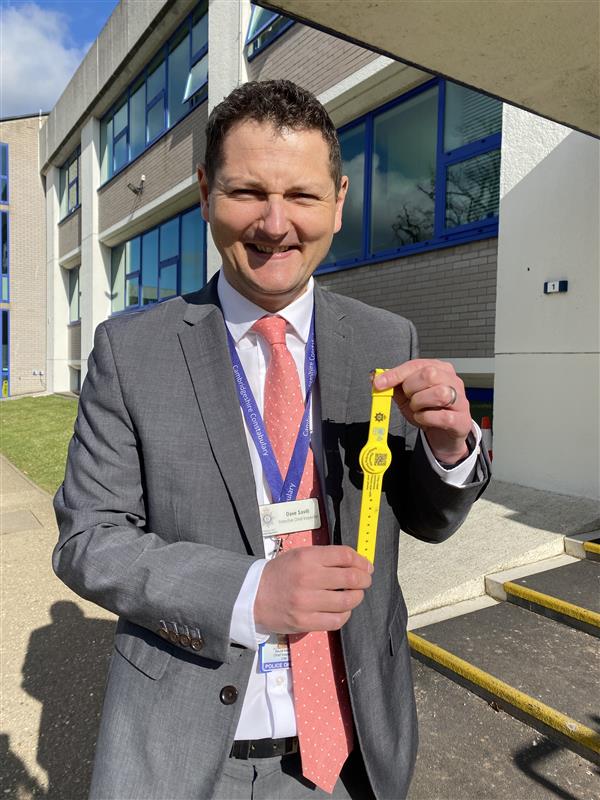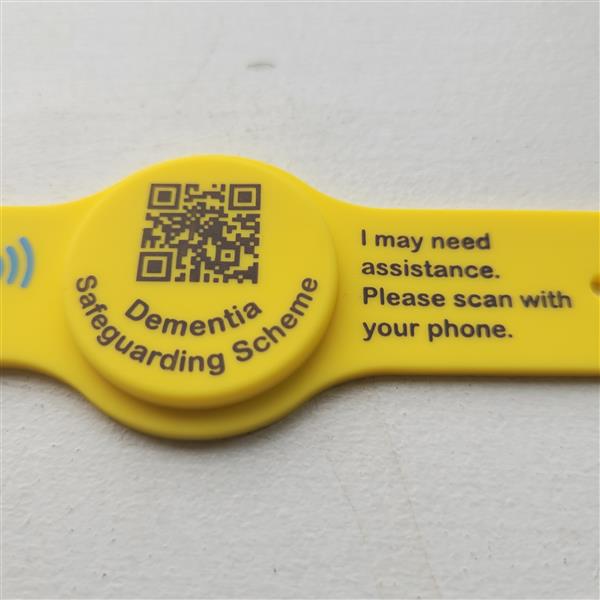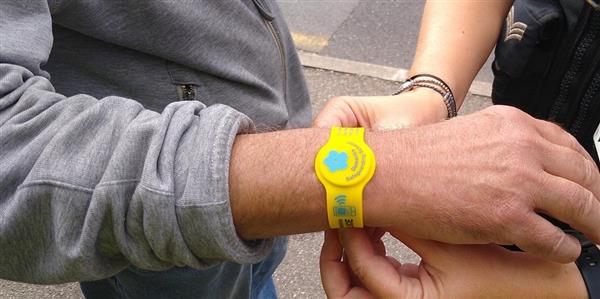|
||||||
|
||||||
|
|
||||||
|
Dear Resident, A smart wristband will be issued to hundreds of people living with dementia in a project supported by the force to help safeguard some of the most vulnerable members of society. The Dementia Safeguarding Scheme will see members of the community in Cambridgeshire who live with dementia offered a yellow wristband, similar to a watch in appearance. The wristband contains their next of kin’s contact name and number, allowing the person to retain their freedom and independence but also giving them an extra measure of safety if they forget where they are or how to get home. There are more than 10,000 people living in Cambridgeshire with dementia and the launch of the project coincides with Dementia Action Week next week (19-25 May). People do not need to register their interest for the wristbands, as the force is working together with partners and the NHS to identify those most vulnerable.
Detective Chief Inspector Dave Savill, of the force’s Protecting Vulnerable People unit, said: “This new technology is one more important step to ensure we do everything possible to protect vulnerable people in Cambridgeshire. “It is crucial that people living with dementia can get to a place of safety and security, with friends or family, as quickly as possible. These wristbands will help to achieve that and reduce the demand on emergency services. “These smart wristbands are an excellent example of how we are trying to harness the latest technology to keep our community and residents safe.” Members of the public who come across someone wearing a wristband and looking lost or confused are asked to reassure them and use their mobile phone to read the information on the band, which uses Near Field Communication (NFC) technology. To do this, hold your mobile against the code on the band and your screen will then display the name and number of the person’s next of kin. You can ring the NOK and reunite them quickly and safely, often with no need to inform anyone else. A video explaining this in more detail can be found on the force’s YouTube channel.
There are currently estimated to be 982,000 people with dementia in the UK according to the Alzheimer’s Society, expected to rise by 1.4 million people by 2040. Dementia mainly affects people over the age of 65 but can also affect younger people. More than a third of people with the condition do not have a diagnosis. The project comes after the force has continued to highlight the Herbert Protocol scheme with examples on social media thanking members of the public for their help, kindness and compassion. Examples in recent months include the story of the reunited brothers in Huntingdon, a man who found an elderly woman on his doorstep in Peterborough and a confused woman trying to get into cars outside a school in Bottisham. Since May 2023 when the scheme was newly highlighted, these social media posts have led to at least 1,600 visits to the force’s dedicated web page containing the Herbert Protocol form. A new Herbert Protocol form has now been launched by the force and can be filled out online at any stage after a person has been diagnosed with dementia. The person does not need to have gone missing to complete one. Completed forms will be stored securely and opened only if the person is reported missing. The form helps collate key pieces of information such as a physical description, familiar places, health details and an up-to-date photo which can be very helpful to officers.
DCI Savill added: “We appreciate how distressing it is when a loved one with dementia goes missing. Unfortunately, this can be common and it is important family and friends are prepared. “Families using our Herbert Protocol form can help officers find a missing person faster, as they will have the answers to lots of important questions straight away at the start of the investigation, which assists us greatly. This means that officers can be sent to find the missing person immediately, while other officers travel to the person making the report. “If you have a friend or family member who is living with dementia, please take the time to complete our new and updated Herbert Protocol form. Hopefully you will never need to use it, but should the need arise, it could make a big difference and reduce the amount of time the person is missing.” For more information and to complete the new online form, visit the Herbert Protocol page on Cambridgeshire Constabulary’s website. Kind regards, | ||||||
Reply to this message | ||||||
|
||||||
|
|
|








